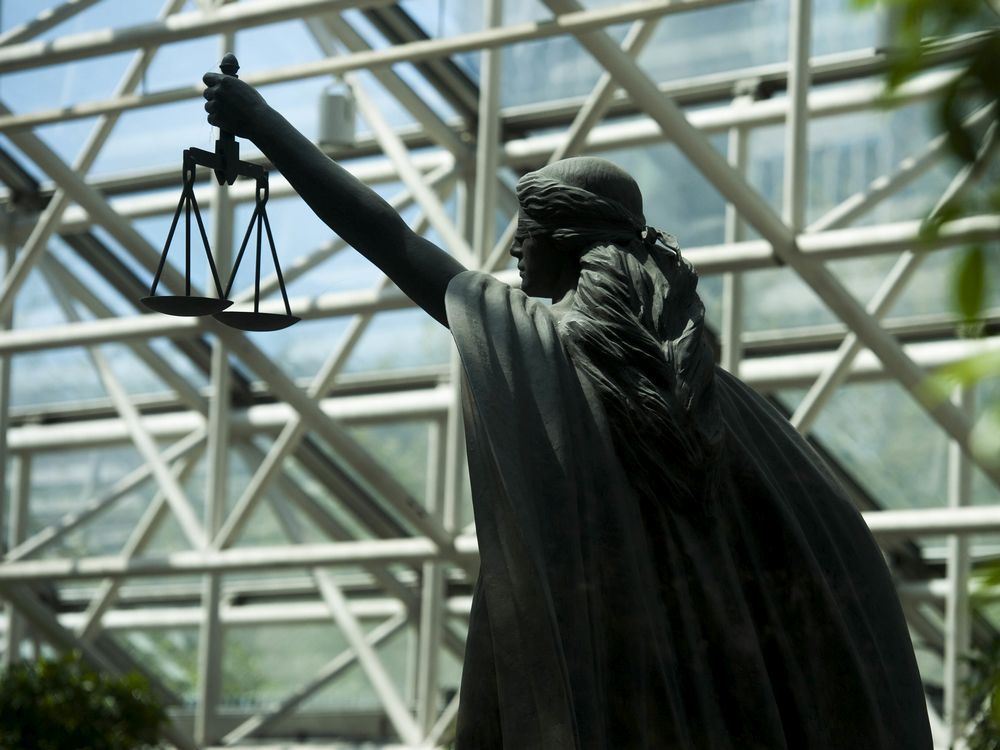Ian Mulgrew: Confusion sparks spat between lawyer, judge at medicare trial

Credit to Author: Ian Mulgrew| Date: Fri, 22 Nov 2019 23:14:25 +0000
After three years of evidence and amid final summations, B.C. Supreme Court Justice John Steeves appeared to lose the thread of the medicare constitutional challenge during a testy dispute with a plaintiff lawyer.
In a lengthy back-and-forth about the fulcrum of the case and what he was being asked to do — the judge wanted to know about general physicians, patient choice and the right of people to spend their own money.
“This case isn’t about GPs,” lawyer Robert Grant emphasized.
“Oh, so it’s not about wait time for GPs?” Steeves replied.
“No, it’s not, no,” Grant said. “We pleaded it as diagnostic and surgical services.”
Specifically, it’s about provisions of the Medicare Protection Act that effectively prohibit access to private diagnostic and surgical services despite pernicious waiting times.
“We heard evidence from GPs including from some of your witnesses,” Steeves said. “We’ve heard evidence about diagnostic services ordered by GPs, and you’re telling me that wait times for GPs are not an issue. I welcome that.”
“Well, wait times to see a GP are not part of our case … our case isn’t about wait times to see a GP,” Grant said. “I believe (plaintiff lawyer Peter) Gall made that clear at some point.”
“I thought I did,” Gall quipped from his seat.
“In any event, that’s not our case,” Grant continued. “Our case is about surgical services.”
“Okay,” Steeves said.
“What we’re dealing with is individuals who have a medical condition and now are placed in a position of waiting for a specialist for diagnosis, for treatment,” Grant explained.
“You simply have to rule on the facts before you — is the prohibition, the effective prohibition on private health care, in the existing state of affairs, the known facts, is that a violation of the Charter” of Rights and Freedoms?
When the justice continued to press with hypotheticals, an apparently frustrated Grant asked: “Do you want me to answer the question?”
Gall sprang to his feet.
“Can I just converse with (Grant) for a second?” he asked Steeves.
“You can talk to him for sure, but not to me,” the justice sharply replied.
“No, no, no,” Grant stammered.
“Actually, Mr. Grant, we’ll take an early break,” Steeves announced.
The plaintiff lawyers huddled in consternation.
“Mr. Gall has persuaded me,” Grant began when court resumed, “I didn’t really understand your question, so I want to go back and answer your question as I now understand it:
“People will be able to choose if they want to pay the money or take out the insurance, and they actually — if the treatment is medically necessary, they can have it done privately. That will be the result.”
“Well, let me put it a different way,” Steeves responded: “Are you saying that because the patient says, ‘I can’t take it anymore,’ that that’s enough to give them the choice to go into the private system?”
Grant’s puzzlement returned.
“We are dealing with evidence of thousands of people suffering serious harm and lengths of wait that exceed the government’s own established maximum acceptable wait times,” he said. “That’s why I’m not sure why your lordship is imagining this question needs to …”
A bristling Steeves retorted: “I’m not imagining anything!
“That’s not appropriate,” the justice added.
“I’m sorry, my lord, I didn’t mean that to be disrespectful,” Grant apologized.
“I’m trying to understand you,” Steeves chided.
Taken aback, Grant said: “I’m trying to understand why your lordship believes that question needs to be answered as part of the analysis. That’s what I’m trying to understand.”
“I’m trying to understand your claim,” Steeves explained. “So in the event your claim is successful, I guess what I’m saying, I frankly don’t understand what that world would look like.”
“Well, it would be a world much like the United Kingdom,” said Grant. “It would be a world in which individuals can go and get private surgery. It would be like, New Zealand actually is closer.”
“All right,” Steeves said.
“I feel as though you don’t feel I’ve answered your question,” Grant said.
“You haven’t,” Steeves said.
“Pardon me?” the lawyer replied.
“I think this is another way of just saying the government can regulate it,” Steeves told him. “And, as I say, I think your case is in a world where, a utopian world where most people are getting their procedures within the benchmarks, you would still say there’s harm for purposes of section 7 (of the Charter).”
“Whether in an imaginary world where governments met the benchmarks, we would have brought the case, I don’t know,” Grant mused. “But certainly our position is …”
“It’s not an imaginary world,” Steeves interjected. “It’s a real world that you want to create. It’s the world that you — that would be in place if your claim is successful. ”
“The world, if we’re successful would be one in which private surgical services are available,” Grant acknowledged.
“As a choice,” Steeves said.
“As a choice,” Grant echoed.
“So it is the patient’s choice … it would be the patient opting out of the public system, right?” Steeves said.
“It would be the patient,” Grant repeated. “Yes, using their own resources.”
“Right,” Steeves said. “All right. And by the way, I hope I know the answer to this, but your case isn’t that the Charter somehow gives people the right to spend money how they want to spend it.”
“Not at all,” Grant assured.
The trial continues.